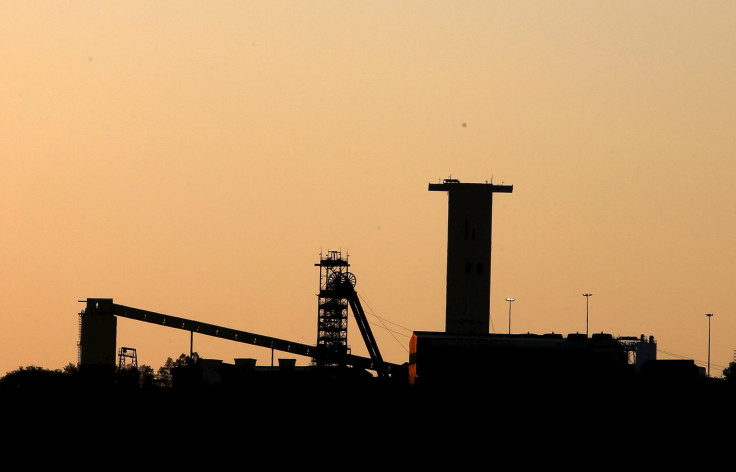South Africa’s Mining Sector Feels The Brunt Of Falling Prices, Could Cut Over 32,000 Jobs

Reeling under the impact of weak growth in emerging markets and global oversupply of commodities, mining companies in South Africa — the world’s biggest producer of platinum and manganese — on Thursday told the nation’s mines ministry they would cut a total of nearly 32,000 jobs.
“Commodity prices have fallen for quite some time and that is causing problems in term of jobs and restructuring,” the South African Mineral Resources Minister Mosebenzi Zwane reportedly said Thursday. “We are engaging with companies to try and see how best we can deal with that situation in a responsible way.”
In terms of commodity wealth, South Africa is the world’s richest nation. Total mineral reserves in the country are estimated at $2.5 trillion — 56 percent more than its closest competitor, Russia. The mining sector is also a crucial source of employment in the country where more than a quarter of the population is unemployed. Currently, the sector is responsible for nearly 14 percent of those employed in the country, providing jobs to nearly 440,000 people.
However, many economists expect South Africa to slide into a recession this year, even though the country’s government disputes the projections. As Africa’s biggest exporter of iron ore to China, South Africa is suffering from a slump in mining, as well as in other sectors like manufacturing and agriculture.
Earlier on Thursday, South Africa's Kumba Iron Ore — a subsidiary of the global mining giant Anglo American — separately announced that it may cut as many as 3,900 jobs at its Sishen mine in the Northern Cape province, the largest iron ore operation in Africa.
“This has been an extremely difficult decision but, after exhausting all other avenues and doing all we could have done to reduce costs, we have no choice but to take more significant steps to preserve the viability of the mine,” Kumba’s CEO Norman Mbazima said in a statement.
Like the currencies of many commodity-exporting nations, the South African rand has declined sharply in recent months because of the worldwide fall in prices of raw materials. The weak rand makes imports — including corn, the nation’s staple food — more expensive, further increasing domestic food prices that are already rising due to one of the country’s worst droughts in years.
“Where there are job losses, we’ll put in mechanisms to deal with that situation,” Zwane reportedly said, adding that the government would seek to mitigate the impact of job cuts by transferring workers to other mines. “We’re going to do everything possible in our power to try and control the situation until the price of commodities improves.”
© Copyright IBTimes 2024. All rights reserved.






















